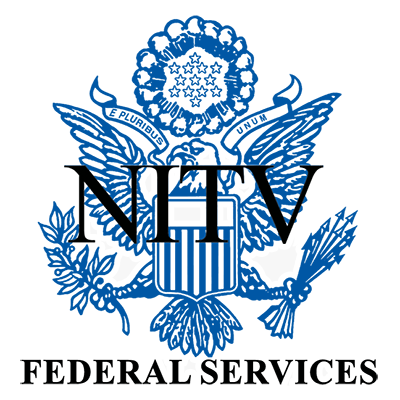
When big pharmaceutical companies lie, everyone suffers. Image Source: Flickr user Chris Potter.
We’ve all seen those pharmaceutical ads featuring smiling people hiking through the forest or enjoying life with increased vigor thanks to some medication. Then the announcer lists the side effects—could cause nausea, allergic reactions—and sometimes death.
Pharmaceuticals do improve health and save lives. Yet, it can all go wrong when greed becomes the motivating factor for releasing a drug with dangerous side effects or when large pharmaceutical companies cover up their mistakes with deception.
There are lies coming from both sides—cover-ups or false claims by pharmaceutical companies or plaintiffs who exaggerated the impact of the drug or device for financial gain. The truth is somewhere in the middle, and while millions of dollars are in play, human health is the most important element at stake in court battles where pharmaceutical companies are accused of fraud or deception. Getting to the truth requires interviews with all parties involved, and the Computer Voice Stress Analyzer (CVSA®) could be an asset for law enforcement officials working on pharmaceutical fraud investigations.
When Thousands are Injured, Stakes are High
The monolith known colloquially by the moniker “Big Pharma” is powerful and tough to fight. There are hundreds of product liability class action lawsuits and single plaintiff lawsuits against big pharmaceutical companies accused of making false statements about the efficacy of their products, off-label promotion, and failure to disclose safety information. These are multilevel investigations which often start either at the civil level with private, corporate, or industry level investigators or at the government level with the FDA. Once there is more evidence or a viable suspect is found, law enforcement, the DOJ, and the courts start building a case and making arrests.
One of the most egregious pharmaceutical cases was that of Purdue Pharma. They settled with payouts of $600 million in one lawsuit and $24 million in another lawsuit filed by the state of Kentucky for their misleading promotion of OxyContin. The risks of this drug are well-publicized now, but when it was marketed in 1996, it was promoted as being less addictive than similar drugs and the risk of abuse was not clearly outlined in physician and consumer materials. In the first lawsuit, the company’s president, their former Chief Medical Officer, and their lead attorney were all penalized with fines and community service at drug addiction treatment facilities. This is also a case where a pharmaceutical company unwittingly contributed to the huge criminal drug trade when OxyContin became a street drug.
Unfortunately, when millions or billions of dollars are involved, there will always be the incentive to cover up neglect or wrongful actions. And the bad people of pharma often get away with their crimes because let’s be honest—top executives just aren’t treated with the same level of scrutiny as the guy who robs a convenience store. There should be a greater search for the truth by all levels of overseeing organizations, law enforcement, and the courts—and the CVSA could potentially be a powerful method to get to the bottom of such critical cases.
The Potential Use of CVSA
The expanding role of the CVSA in a wide variety of cases—such as pharmaceutical fraud, misbranding, and illegal marketing for both criminal and civil cases—is just starting to be explored. Many law enforcement agencies are already using the CVSA to interview suspects for any type of alleged criminal activity, and though there is no precedent for using CVSA in class action lawsuits yet, these situations are not much different than other criminal cases in which law enforcement uses truth verification technology. In fact, getting to the truth in a case like this is of the ultimate importance because of the high risk to human health.
When pharmaceuticals or medical devices cause harm, we need to get answers straight from the mouths of the workers who are diligently protecting the company’s assets. This means interviewing all people involved—from the pharmaceutical executive or sales rep to the person claiming injury—and truth verification technology could be a big help in determining whether a crime has been committed and the extent of the injury. Those with a vested interested in the company and their profits may be resistant to telling the whole story honestly, but with the help of a CVSA Examiner, their deception could be detected right away. When law enforcement becomes involved in such lawsuits, the police interview can help build a strong case leading to criminal prosecution while the plaintiffs who are injured can become part of a class action lawsuit to seek financial restitution.
When Plaintiffs Lie for Financial Gain
Unfortunately, there will always be plaintiffs who lie about their cases in order to reap financial rewards, and, as such, plaintiffs need to be vetted to ensure their claims are viable. Medical records are part of the evidence, but they don’t always show enough cause, especially in a case involving pain—which can be subjective or difficult to prove—or in a case where there is emotional or mental harm caused by a pharmaceutical. The CVSA—which is already being utilized for background screenings during police recruitment—could potentially be used to not only vet plaintiffs but also prove if they are being truthful about the injury in question.
Class action lawsuits require thousands of legal hours, millions of dollars in litigation expenses, and the serious outcome of having to pay millions or billions in settlements. Using every tool available to help expedite the process benefits both sides. Although this option has not yet been thoroughly explored, the CVSA is one potential solution that could aid investigators in settling these high-profile cases. After all, it’s for the public good to move that lawsuit out of court, make restitution to the injured parties and, of course, get the pharmaceutical company back on track doing the important work they do when best practices are followed.
Please reach out to us at NITV Federal Services to learn more about our CVSA systems and training programs.
